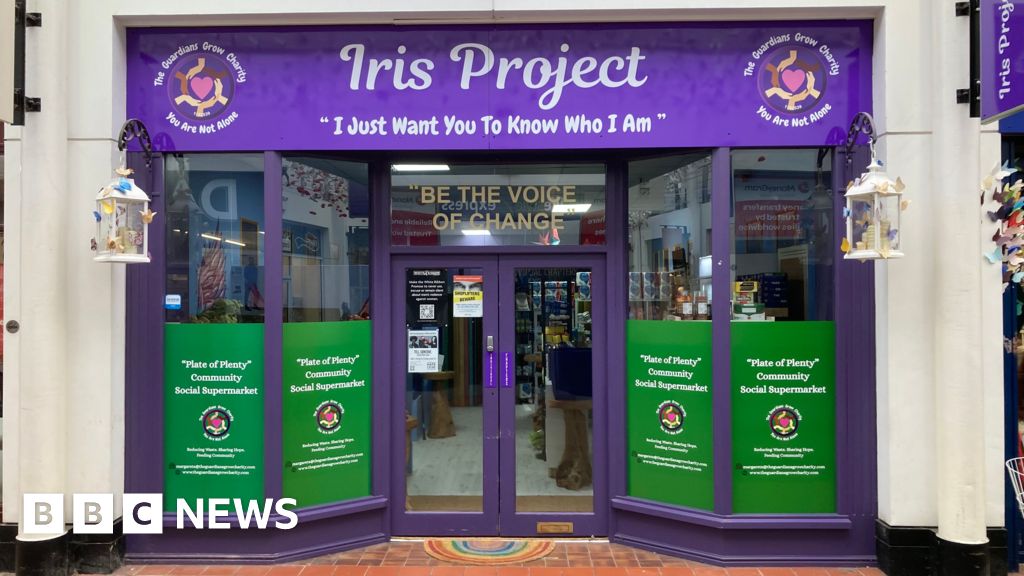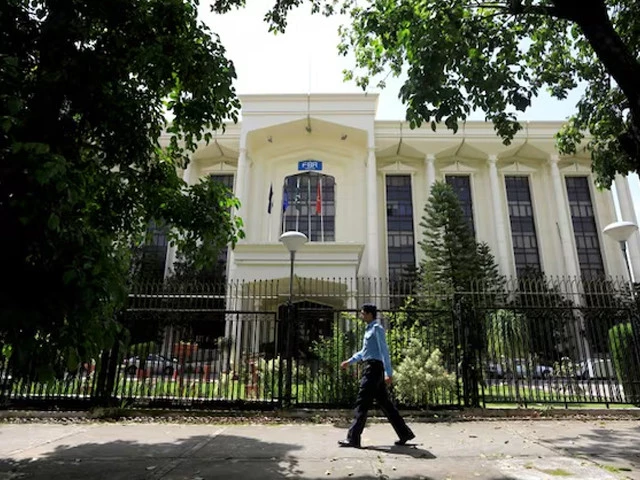Business
Hyundai outlines ambitious U.S. growth plans weeks after ICE immigration raid at battery plant

Jose Munoz, president and CEO, Hyundai Motor Company, speaks during a media tour and grand opening at the Hyundai Motor Group Metaplant America, March 26, 2025, in Ellabell, Ga.
Mike Stewart | AP
NEW YORK — Hyundai Motor reinforced aggressive growth plans Thursday through the end of the decade, despite lowering its profit outlook for the year due to tariffs.
The new targets call for an operating profit margin this year of between 6% and 7%, down from 7% to 8%, and an increase in revenue of between 5% and 6% — up 2 percentage points — compared with 175.2 trillion South Korean won (US$12.7 billion) in 2024.
The South Korean automaker revised its financial targets Thursday ahead of a CEO investor day in New York City. It is the first time the company has hosted the event outside of South Korea as well as the first time CEO José Muñoz — who was promoted to the top job at the automaker beginning this year — led the meeting.
Along with revising financial targets, the world’s third-largest automaker reconfirmed its ambitious growth plans that include increasing annual sales to 5.55 million by 2030. Such results would mark a roughly 34% increase from its global sales last year of 4.14 million units.
Muñoz opened the meeting by discussing the company’s expansion plans, largely fueled by the U.S., which he called the “engine of growth” for the automaker. Hyundai is currently in the process of investing $26 billion from 2025 to 2028 to expand its operations in America.
“This isn’t just about tariff mitigation, it is about building the most advanced, efficient manufacturing ecosystem in the automotive industry,” he said during the event, adding the U.S. is its largest opportunity for expanding localized manufacturing.
Hyundai aims to have more than 80% of its U.S. vehicle sales be produced locally by 2030. That compares to roughly 40% currently. That is expected to include a Hyundai-developed midsize pickup truck as well as potentially a more rugged SUV than the company currently offers, Muñoz said Thursday.
“I think it’s long overdue,” Muñoz told reporters after the event, calling it “a big opportunity.”
The CEO investor event is occurring at an inopportune time for the company, as well as relations between the U.S. and South Korea.
A masked federal agent wearing a Homeland Security Investigations vest guards a site during a raid where about 300 South Koreans were among 475 people arrested at the site of a $4.3 billion project by Hyundai Motor and LG Energy Solution to build batteries for electric cars in Ellabell, Georgia, U.S. September 4, 2025 in a still image taken from a video.
U.s. Immigration And Customs Enf | Via Reuters
The New York meeting comes weeks after hundreds of workers were arrested during an immigration raid at a jointly owned battery plant between Hyundai and LG Energy Solution in Georgia.
About 475 workers, including more than 300 South Koreans, were arrested in the Sept. 4 raid at the plant in Ellabell, Georgia, according to U.S. immigration officials. Many workers who were detained returned home via a chartered plane following discussions between South Korea and U.S. officials.
Muñoz confirmed Thursday that those detained worked for suppliers, with no Hyundai employees being arrested.
The raid, which was the largest single-site enforcement operation in the U.S. Department of Homeland Security’s history, was conducted over suspicions about “unlawful” visas or immigration status of workers at the site, U.S. officials have said.
At the beginning of the Thursday meeting, Muñoz expressed “our sincere empathy” for the workers and their families who were impacted by the raid. He said he hopes the U.S. and South Korea can work together to resolve the issue and continue the healthy relationship between the two countries.
“As our executive chair said last week, we hope the U.S. and Korea can work on mutually beneficial solutions for short-term business travel, especially for specialized technical expertise,” Muñoz said.
His comments on visas echoed those from Bob Lee, North American president of LG Energy Solution. Lee on Monday said that may be the “one positive” to come from all this and expressed optimism about the company being able to avoid such actions in the future.
“We’re very supportive of this and we’re cautiously optimistic that this type of thing will not happen again,” Lee said at a Center for Automotive Research conference in Detroit.
Business
Nuneaton social supermarket aims to provide affordable food

The charity’s founder says the supermarket also aims to help users get support from other services.
Source link
Business
Gold, silver price prediction today: Gold, silver back on track for gains? Here’s the outlook – The Times of India

Gold and silver price prediction: Gold and silver prices have resumed their upward momentum after the recent crash, signalling bullish momentum, says Abhilash Koikkara, Head – Forex & Commodities, Nuvama Professional Clients Group. He shares his views on gold and silver:
MCX Gold Price Outlook:
MCX Gold on the weekly timeframe has undergone a correction from its all-time high of 180,779. However, prices have found support at the rising trendline and have rebounded, indicating a resumption of the bullish trend. The recent acceleration reinforces the strength and sustainability of the move, and the broader outlook remains positive as long as prices hold above the weekly low.From a weekly standpoint, the 147,000 region stands out as a crucial support, aligned with the 30-days exponential moving average. Any pullback toward this zone is expected to draw fresh buying interest, helping to limit downside risk in the near term. Sustaining above this level keeps the bullish structure intact and supports ongoing positive momentum.Gold looks well positioned to move toward the 175,000 mark in the coming sessions, and a decisive close above this level would validate the bullish bias for subsequent periods. This potential upside aligns with the broader uptrend and highlights the strength of prevailing momentum. Moreover, the formation of higher highs and higher lows over the week further supports positive sentiment and points to the likelihood of a sustained upward move.Overall, gold continues to exhibit a positive bias, with the broader technical structure clearly supporting trend continuation. As long as prices stay comfortably above the key 147,000 support level, the bullish setup remains valid. Backed by strong momentum indicators and a supportive market sentiment environment, the metal appears well placed to carry its upward move forward in the coming sessions.
MCX Gold Trading Strategy:
- CMP: 159,000
- Target: 175,000
- Stoploss: 147,000
MCX Silver Price Outlook:
MCX Silver has seen a healthy pullback from its all-time high of 420,048 and has since rebounded from recent lows, signalling a resumption of the bullish trend. With the underlying trend still positive, any ongoing dips may be viewed as buying opportunities as long as the latest weekly low holds. We advise aligning positions with the prevailing uptrend, while maintaining a controlled stop-loss at the recent weekly lows.Silver’s rally at the start of the week signals a renewed bullish trend and strengthens the outlook for further upside. As long as prices remain above the weekly support levels, the positive bias is expected to persist. Immediate key support is seen around the 245,000 zone, and a close below this level could weaken the bullish outlook. Until then, any pullback is likely to attract fresh buying interest, sustaining upward momentum.On the upside, silver appears well positioned to test the 330,000 resistance over the near to medium term. This prospective move points to a continuation of the prevailing bullish phase, backed by strong momentum and favourable technical indicators. Overall, provided prices remain firmly above the 245,000 support level, silver is expected to sustain its uptrend, with ample scope for further appreciation as bullish sentiment continues to strengthen.
MCX Silver Trading Strategy:
- CMP: 284,000
- Target 330,000
- Stoploss: 245,000
(Disclaimer: Recommendations and views on the stock market, other asset classes or personal finance management tips given by experts are their own. These opinions do not represent the views of The Times of India)
Business
Top stocks to buy today: Stock recommendations for February 5, 2026 – check list – The Times of India

Top stock market recommendations: According to Aakash K Hindocha, Deputy Vice President – WM Research, Nuvama Professional Clients Group, the top buy calls for today are: Petronet, MRPL, and CCL. Here’s his view on Nifty, Bank Nifty, and the top stock picks for February 5, 2026:Index View: NiftyNifty has been on a roller coaster from the start of this calendar month with India VIX seeing over 80% gain in volatility from January 01, 2026. With large gap up opening unable to sustain, the gap between last week highs and this week’s low is likely to get filled sooner this month. This gap however, should be used to create longs with support seen at the rising 200 DMA for targets of 25940 / 26100.Bank NiftyBank Nifty has already done what we are expecting Nifty to do, which is it has tested its last week’s highs in yesterday’s volatile session. Breaking of current week’s low and reversing near 59700 odd is likely to be used as an opportunity to create fresh longs on the index, as Bank Nifty has experienced 59650 as significant resistance over the past 9 weeks of trade and the same is likely to act as support based on classical technical thesis.PETRONET (BUY):
- LCP: 298
- Stop Loss: 287
- Target: 324
After its initial breakout from 15 month sloping trendline, PETRONET had been lacking triggers making it wait within a 6-8% band. With the 200 DMA now supportively reclaimed and stock closing at 6 month highs, momentum buyers could come in. Given the set up an 8-10% rally can unfold.MRPL (BUY):
- LCP: 182
- Stop Loss: 171
- Target: 201
MRPL has recovered over 30% in the last 9 trading sessions given its reversal from the 200 DMA support. A repetitive higher low formation was also seen on weekly charts of the same. Stock is on the verge of closing at 16 month highs on weekly charts if it retains at CMP until Friday’s close which also corresponds to an end to the stock’s 2 year corrective phase.CCL (BUY):
- LCP: 1002
- Stop Loss: 957
- Target: 1078
CCL had been consolidating for the past 12 weeks with a negative bias correcting over 15% from its all time highs. With lower high formations seen from the start of this calendar year and a trendline breakout of this consolidation seen this week, prices indicate a start of a fresh up move unfolding back to its previous highs.(Disclaimer: Recommendations and views on the stock market, other asset classes or personal finance management tips given by experts are their own. These opinions do not represent the views of The Times of India)
-

 Sports1 week ago
Sports1 week agoPSL 11: Local players’ category renewals unveiled ahead of auction
-

 Entertainment1 week ago
Entertainment1 week agoClaire Danes reveals how she reacted to pregnancy at 44
-

 Sports1 week ago
Sports1 week agoCollege football’s top 100 games of the 2025 season
-

 Politics1 week ago
Politics1 week agoTrump vows to ‘de-escalate’ after Minneapolis shootings
-

 Sports1 week ago
Sports1 week agoTammy Abraham joins Aston Villa 1 day after Besiktas transfer
-

 Entertainment1 week ago
Entertainment1 week agoK-Pop star Rosé to appear in special podcast before Grammy’s
-

 Tech1 week ago
Tech1 week agoThe Surface Laptop Is $400 Off
-

 Tech1 week ago
Tech1 week agoBrighten Your Darkest Time (of Year) With This Smart Home Upgrade












